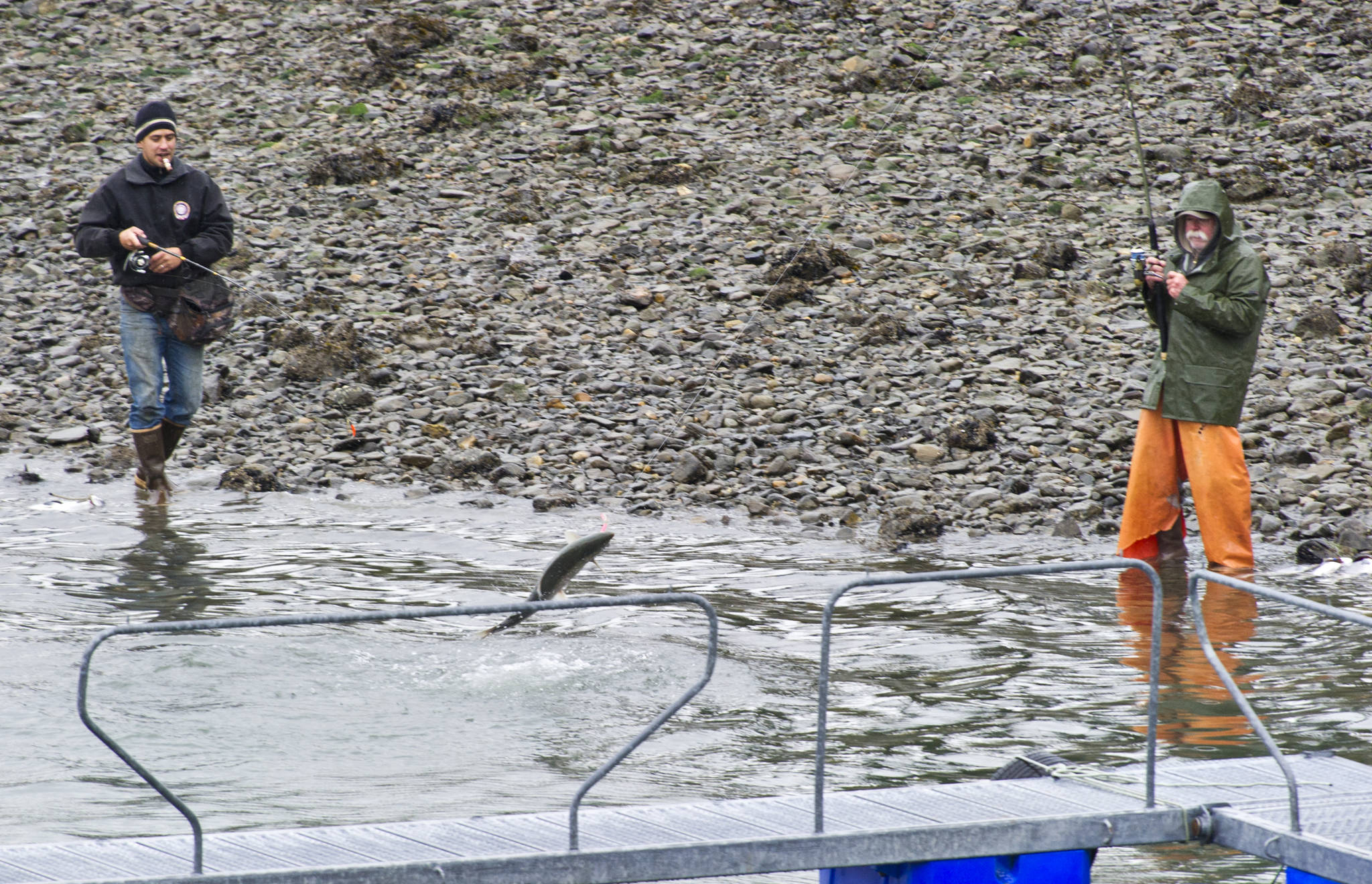The Alaska Division of Elections recently certified a controversial ballot initiative that has many people concerned about its potential consequences. The initiative, sponsored by the ballot group “Yes for Salmon,” claims to strengthen state law protecting wild salmon and the fish and wildlife habitat in Alaska.
A close examination of the initiative (previously called Stand for Salmon) reveals it is an environmental initiative that would cause significant negative impacts on community and economic development.
Opposition to the initiative has grown rapidly and ranges across a wide spectrum of interests — not just the oil, mining, and timber industries so often targeted by environmental groups.
An opposition group, Stand for Alaska, has formed and is comprised of all 13 regional Alaska Native corporations, Alaska State Chamber, Southeast Conference, members of the visitor industry, construction companies, transportation companies, union organizations, and various other industry trade groups.
The State of Alaska claims the ballot initiative is unconstitutional and is challenging it in court because it would prioritize one state resource over another. Arguments are scheduled to be heard before the Alaska Supreme Court on April 26.
Even if ruled constitutional, backers seem nervous about this measure being turned down by voters. They have enlisted former Gov. Tony Knowles to urge Alaskans to support a legislative solution instead. This avoids a vote if the legislation is “substantially similar” to the initiative. Unfortunately, this is a non-starter as any legislation “substantially similar” would be equally flawed.
The primary opposition against the initiative is rooted in the real fear it could virtually halt any potential development project in the state on the basis it might affect fish habitat — mostly streams, rivers and other waters identified as anadromous (anywhere adult fish migrate from the sea into fresh water to spawn).
The definition in the initiative is so vague and all-inclusive as to apply to almost any body of water.
“… Anadromous fish habitat means a naturally occurring permanent or intermittent seasonal water body, and the bed beneath, including all sloughs, backwaters, portions of the floodplain covered by the mean annual flood, and adjacent riparian areas, that contribute, directly or indirectly, to the spawning, rearing, migration, or overwintering of anadromous fish.”
Furthermore, this initiative flips current law regarding fish habitat and would require projects to prove that any body of water connected to marine waters regardless of its size or location is not anadromous.
“… The commissioner shall presume that a naturally occurring permanent or seasonal surface water body, including all upstream tributaries and segments, is anadromous fish habitat … if connected to anadromous or marine waters.”
The prime sponsors of the initiative are three environmental organizations: the Susitna River Coalition, the Alaska Center (formerly known as the Alaska Center for the Environment) and the Alaska Conservation Foundation. They appear to be the only Alaska-based organizations contributing any significant financial support.
According to recent APOC reports, these three organizations, significantly funded by sources from out of state, have contributed approximately $112,000 — less than half of the money raised supporting the initiative effort so far.
Another $130,000 has been raised from out-of-state — most notably the Wild Salmon Center based in Portland, Oregon. The single largest donation — $50,000 — is listed under the name of Michael Kowalski from New Jersey. Kowalski is the Chairman of the Board of Tiffany &Co. — whose corporate foundation has contributed upwards of $1.8 million trying to kill the Pebble Mine project.
The bulk of expenditures by Yes for Salmon has gone towards paid signature gatherers that garnered the necessary signatures to qualify the initiative on the ballot.
Oddly, no fishing industry groups appear to have contributed to Yes for Salmon yet.
In contrast, the Stand for Alaska opposition group has raised almost all its funds from companies, trade groups, Native corporations, and unions with operations based in Alaska.
It makes you wonder whether Yes for Salmon is, as they claim, “a diverse group of Alaska-based individuals, businesses and organizations who support responsible development and a thriving economy in Alaska.”
Is Yes for Salmon really “standing for salmon,” or are they standing for outside environmental groups and out-of-touch East Coast liberals trying to control Alaska?
• Win Gruening retired as the senior vice president in charge of business banking for Key Bank in 2012. He was born and raised in Juneau and graduated from the U.S. Air Force Academy in 1970. He is active in community affairs as a 30-plus year member of Juneau Downtown Rotary Club and has been involved in various local and statewide organizations.

